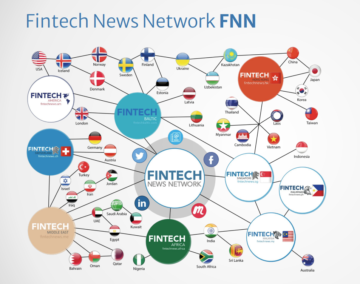With the rise of fintech, traditional banks are being disrupted by nimbler, more customer-centric digital banks; it seems that the future of banking lies in the digital world. The traditional brick-and-mortar banking model’s role has been reduced in the digital age.
It is evident that Southeast Asia is moving towards a digital future and digital banking is at the forefront of this change. With the many benefits of digital banking, it is not surprising that this trend is taking off in the region.
Malaysia has already awarded five digital banking licenses comprising Boost Holdings, RHB Bank Berhad, Sea Limited, and YTL Digital Capital Sdn. Bhd. and KAF Investment Bank Sdn. Bhd
In Singapore, digital banks have already started operating, with MAS granting full digital bank license to Grab-Singtel consortium’s GXS Bank, SEA Group’s MariBank, Standard Chartered’s Trust Bank, Ant Group’s ANEXT Bank, and the Green Link Digital Bank,
Thailand plans to issue digital banking licenses next year
The Bank of Thailand is currently in the process of preparing to issue licenses for digital banks. What does this mean for Thailand and its economy?
Earlier this month, the Bank of Thailand published a consultation paper on Virtual Bank Licensing Framework to introduce digital banks as a new financial service provider.
Thai regulators are set to allow the country’s first digital banks to offer services to boost competition, cut costs for businesses and individuals, and widen loan access in 2025.
The Bank of Thailand (BoT) plans to issue up to three virtual banking licences in the first stage of its digital plans, allowing financial institutions and non-financial firms to apply.
While the applications are open in quarter one of 2023, ten parties have expressed an interest in applying for the permits, with applications opening later this quarter.
The applicants must first submit their business models and feasibility studies to the BoT for review and consideration, which will take six months before submitting the names to the Finance Ministry, taking an additional three months of consideration.
The names of the approved licence holders are expected to be announced in the middle of 2024. After obtaining the licenses, they will be given a year to prepare for the launch of their operations in 2025.
Applicants to meet stringent requirements
The BoT has revealed the requirements for those wishing to operate a digital bank in Thailand, intending to allow innovation and competition in the banking sector while safeguarding customers.
Many banks are eager to apply for the license to explore more significant business opportunities. One such bank is Krungthai Bank (KTB), which has partnered with Advanced Info Service (AIS) to invest in a digital bank to serve existing and new customers.
However, all qualified applicants must meet specific requirements and possess the technology, digital services, and data analytics expertise.
Digital banks are to offer financial services with new value propositions through digital channels while lowering staff and bank branch costs.
In addition, the qualified digital banks must have minimum registered capital of THB5 billion on the day operations start. All qualified business operators must apply for a licence through several models, such as a joint venture between local partners, a single business operator, or a venture between both local and foreign partners.
According to the BoT, approved digital banks must manage their digital banking services professionally. This would encompass glitches of no more than eight hours a year, and problems must be solved within two hours.
The BoT has announced that it will put the country’s forthcoming digital banks under a “restricted phase.” This is to ensure proper monitoring and to prevent systemic financial risks.
“Digital banks should not initiate a race to the bottom through irresponsible lending, give preferential treatment to related parties, nor abuse dominant market position which will pose risks to financial stability, depositors, and consumers as a whole.”
Serving underserved and unserved segments
To support financial inclusion, these upcoming digital banks should facilitate access to financial services at reasonable prices for the underserved and underserved segments of retail and small-and-medium-enterprises (SMEs) customers.
Currently, 13.3 million Thais need access to formal financial services. Therefore, digital banks will help increase financial inclusion and reduce social inequality in the country.
What will digital banks bring to Thailand?
The central bank has studied digital bank models in several countries, including Singapore, therefore playing to the nation’s advantage.
One of the key arguments in favour of digital banks is that they could help to increase competition in the country’s financial sector. Thai regulators seek to promote healthy competition between new fintech players and incumbent banks to drive innovation and better financial services.
This recent move is seen to contribute to the expansion of Thailand’s economy and provide underserved customers who traditional banks currently underserve with access to financial services at reduced prices.
Digital banks can provide a broader range of services and products and reach new customer segments. Ultimately, this will benefit all customers through enhanced competition and increased choice. This will help bring financial inclusion to a more significant number of people.
- SEO Powered Content & PR Distribution. Get Amplified Today.
- Platoblockchain. Web3 Metaverse Intelligence. Knowledge Amplified. Access Here.
- Source: https://fintechnews.sg/68734/crypto/thailand-to-issue-3-digital-banking-licenses-next-year-all-you-need-to-know/
- 2023
- 2024
- 7
- a
- abuse
- access
- addition
- Additional
- advanced
- ADvantage
- After
- All
- Allowing
- already
- analytics
- and
- announced
- ant
- applications
- Apply
- Applying
- approved
- arguments
- asia
- awarded
- Bank
- Bank of Thailand
- Bank of Thailand (BOT)
- Banking
- Banks
- before
- being
- benefit
- benefits
- Better
- between
- Billion
- boost
- Bot
- Bottom
- Branch
- bring
- broader
- business
- businesses
- capital
- caps
- central
- Central Bank
- change
- channels
- choice
- competition
- consideration
- Consumers
- contribute
- Costs
- could
- countries
- country
- country’s
- Currently
- customer
- Customers
- Cut
- cut costs
- data
- Data Analytics
- day
- depositors
- digital
- digital bank
- digital banking
- Digital Capital
- digital services
- digital world
- dominant
- drive
- economy
- enhanced
- ensure
- existing
- expansion
- expected
- expertise
- explore
- expressed
- facilitate
- finance
- finance ministry
- financial
- financial inclusion
- Financial institutions
- Financial sector
- financial service
- financial services
- financial stability
- fintech
- firms
- First
- forefront
- foreign
- formal
- forthcoming
- Framework
- friendly
- full
- future
- Give
- given
- Group’s
- healthy
- help
- holders
- Holdings
- HOURS
- HTTPS
- in
- Including
- inclusion
- Increase
- increased
- Incumbent
- individuals
- info
- initiate
- Innovation
- institutions
- Intending
- interest
- introduce
- Invest
- investment
- issue
- IT
- joint
- Know
- launch
- lending
- Licence
- licences
- License
- licenses
- Licensing
- Limited
- LINK
- loan
- local
- manage
- many
- MariBank
- Market
- Meet
- Middle
- million
- minimum
- ministry
- models
- monitoring
- Month
- months
- more
- move
- moving
- names
- Nations
- Need
- New
- next
- number
- obtaining
- offer
- ONE
- open
- opening
- operate
- operating
- Operations
- operator
- operators
- opportunities
- parties
- partners
- People
- phase
- plans
- plato
- Plato Data Intelligence
- PlatoData
- players
- playing
- position
- Prepare
- preparing
- prevent
- Prices
- problems
- process
- Products
- professionally
- promote
- proper
- provide
- provider
- put
- qualified
- Quarter
- Race
- range
- reach
- reasonable
- recent
- reduce
- Reduced
- region
- registered
- Regulators
- related
- Requirements
- retail
- return
- Revealed
- review
- Rise
- risks
- Role
- SEA
- sector
- Seek
- seems
- segments
- serve
- service
- Service Provider
- Services
- set
- several
- should
- significant
- Singapore
- single
- SIX
- Six months
- SMEs
- Social
- Southeast Asia
- specific
- Stability
- Staff
- Stage
- standard
- start
- started
- studied
- studies
- submit
- such
- support
- surprising
- systemic
- Take
- taking
- Technology
- ten
- thai
- Thailand
- Thailand’s
- The
- their
- therefore
- three
- Through
- to
- towards
- traditional
- treatment
- Trend
- true
- Trust
- Trust Bank
- Ultimately
- under
- underserved
- unserved
- upcoming
- value
- venture
- Virtual
- virtual bank
- Virtual Banking
- What
- which
- while
- WHO
- will
- within
- world
- would
- year
- You
- zephyrnet















